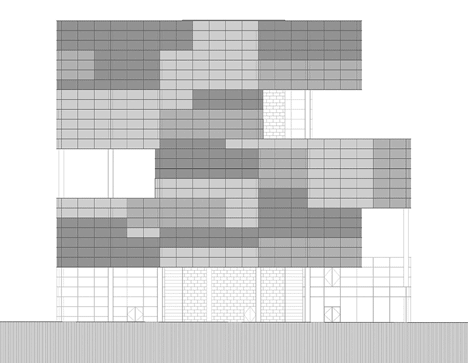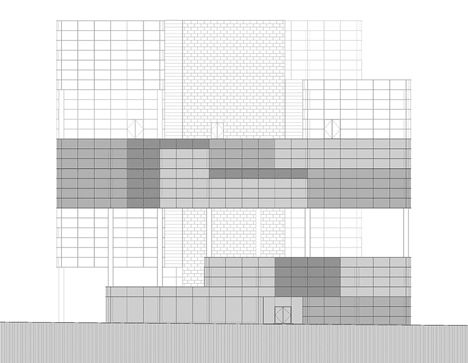D38 Zona Franca Office by Arata Isozaki
Modular offices open out to terraces on each floor of this building in Barcelona by Japanese architect Arata Isozaki (+ slideshow with photographs by Filippo Poli).
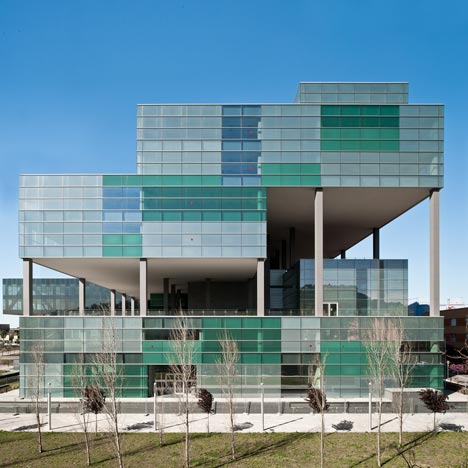
Completed in April, the project is the first in a three-phased office development masterplanned by Isozaki alongside former Foreign Office Architects partners Alejandro Zaera-Polo and Farshid Moussavi for a site in the industrial district of Zona Franca.
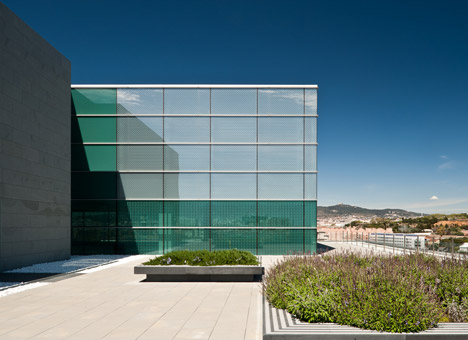
The glass-panelled facade is covered with a pattern of white and green dots, which reduce glare into the offices behind.
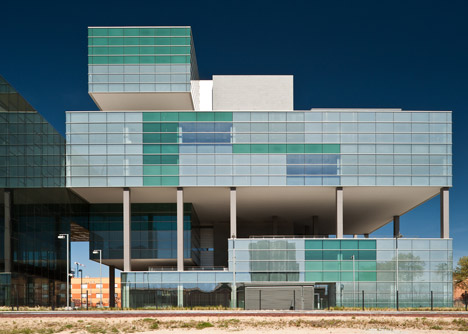
The building has a square-shaped plan where each level surrounds a central core containing staircases and lifts.
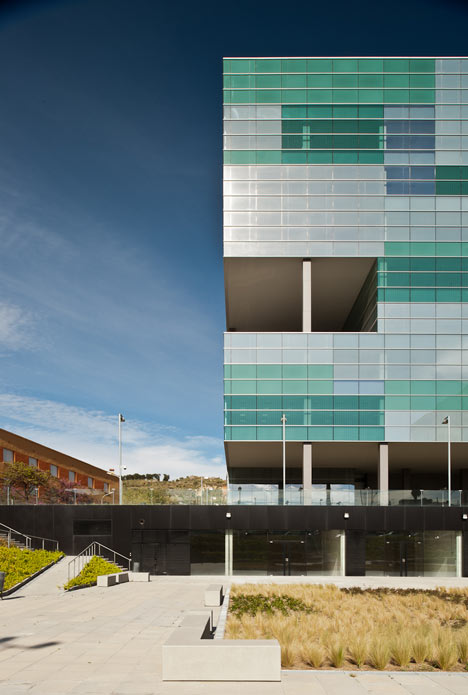
Offices floors have either a C or L-shaped layout and can be subdivided into two or three units.
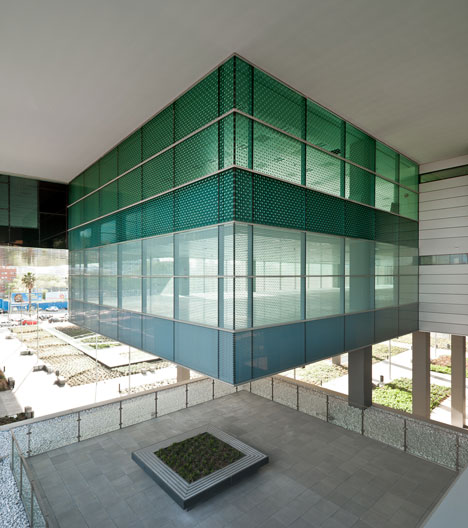
Last year Isozaki unveiled designs for an inflatable concert hall by himself and artist Anish Kapoor.
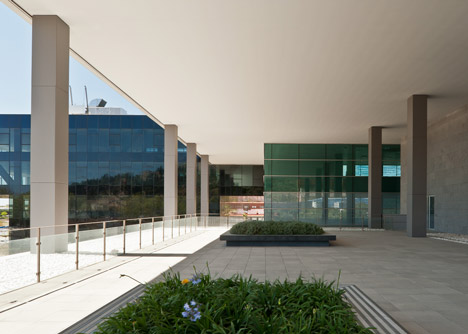
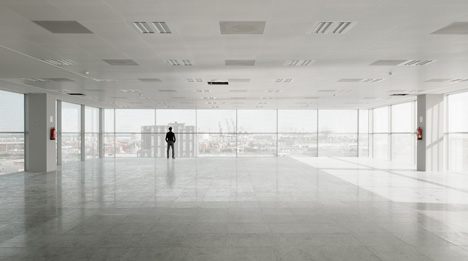
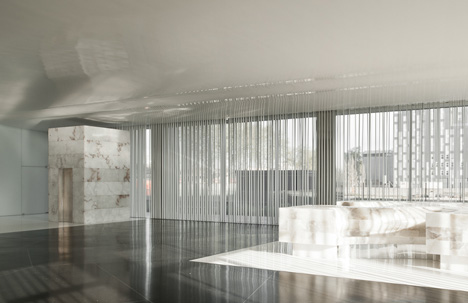
Here's some text from Arata Isozaki & Associates:
D38. Zona Franca, Barcelona
DISTRITO 38 is an office-park project of 70,000 square meters developed on a 35,000 square meter lot, which is to be built in three phases according to a master plan produced in collaboration with FOA.
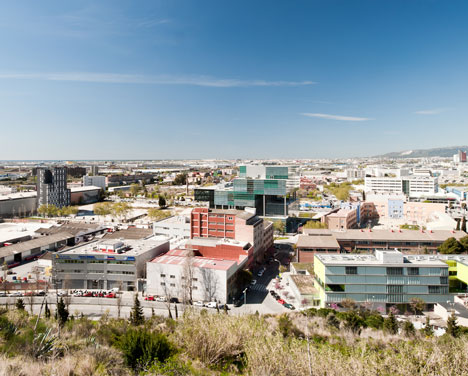
The area can be found at the foot of Montjuic hill, to the west of Barcelona, in a zone abounding in office projects currently under development, thus converting the area into an important tertiary centre located close to the airport and the seaport.
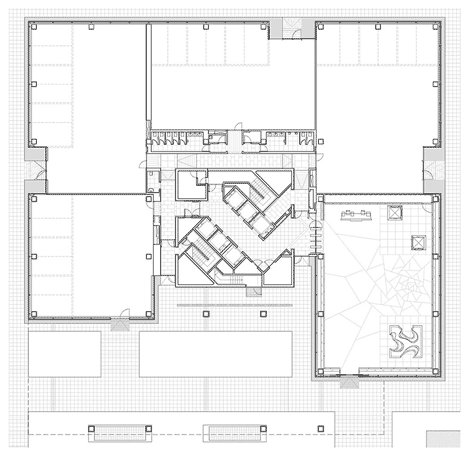
There exists great diversity in office spaces at present, and since the final use and necessities of these offices are still unknown, an open system that allows for posterior reorganisation according to new and developing requirements was chosen.
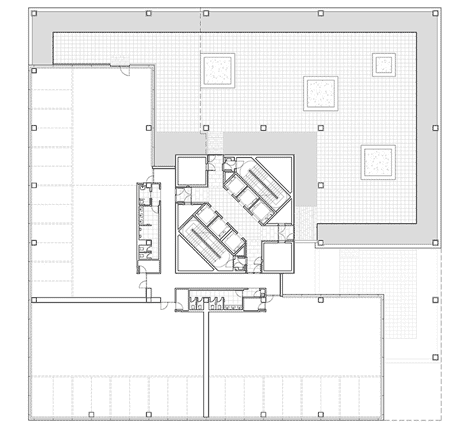
The lot faces a representative part of the Paseo de Zona Franca.
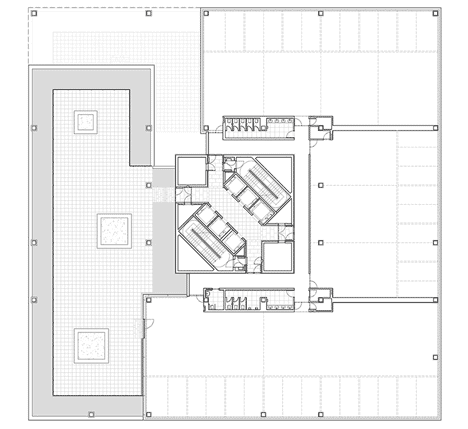
Using this as a reference point, a 7.5 x 7.5 meter grid defined by a structural mesh has been deployed, from which point the parking area as well as the six planned buildings will be developed.
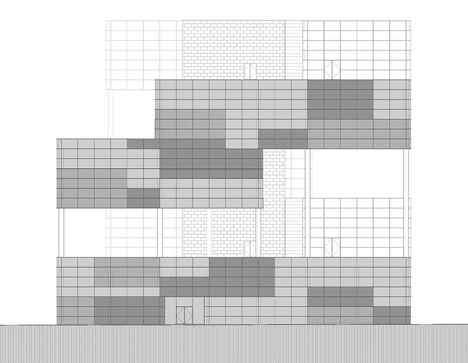
Building 1 has been conceived as a parallelepiped, measuring 52.5 x 52.5 meters on the sides with a height of 46.5 meters, and featuring a central core from which parts will be subtracted perimetrically from the volume.
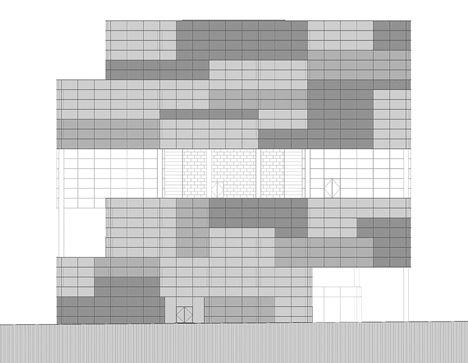
This ‘subtraction game’ leads to better location adaptation, a hierarchy in the different façades, and easier adaptability in the creation of office settings, ideal in this highly fluctuating market.
